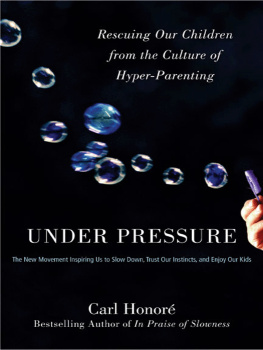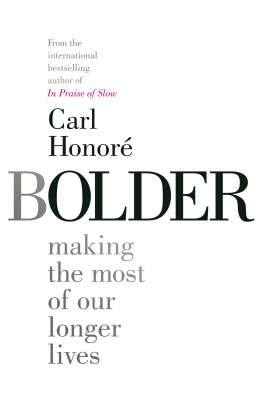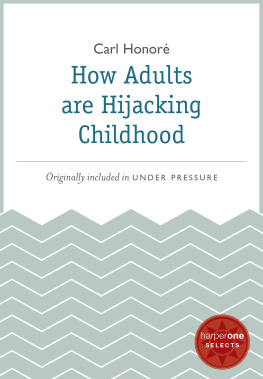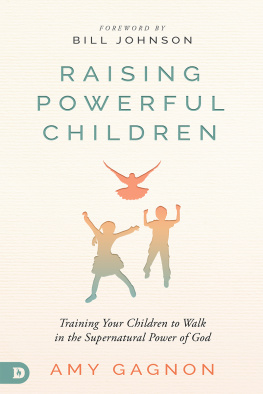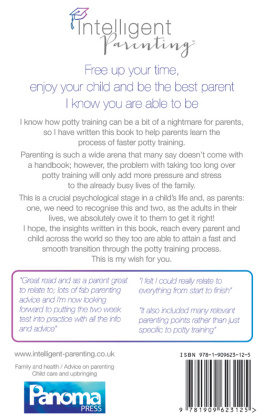No matter how calmly you try to referee, parenting will eventually produce bizarre behavior, and Im not talking about the kids.
Bill Cosby
In an affluent corner of London, in a primary school built more than a century ago, a very modern parent-teacher evening is in full swing. My wife and I are here for an interview about our seven-year-old son. A few parents sit outside the classroom on plastic chairs, staring at the floor or glancing at their watches. Some pace the corridor, fiddling nervously with mobile phones.
The year-two workbooks are piled up like small snowdrifts on a table. We flip through them, smiling at eccentric spellings, cooing over sweet drawings, and marveling at the complexity of the arithmetic. Our sons triumphs and failures are laid bare on the page, and they feel like our own. I celebrate each gold star in his workbook with a silent cheer.
Eventually, Mrs. Pendle invites us into the classroom. Our son seems to be thriving, so we have high hopes for the interview. Once we take our seats at a low table, Mrs. Pendle delivers her verdict: Our son is very good at reading and writing. His math is solid. His science could be better. He is well behaved and a pleasure to teach.
It is a very good report, yet somehow not quite good enough. She didnt mention his amazing vocabulary, says my wife, as we walk away from the classroom. Or explain why hes not in the top group in every subject, I add. Our tone is jocularwere making fun of the pushy parents you read about in the newspapersbut there is an edge to the irony. We partly mean it, too.
After my wife goes home to relieve the babysitter, I head off to visit the art teacher. Your son really stands out, she gushes. He always comes up with a different twist on things. Thats more like it, I think to myself. One of his works is pinned to the wall of the art room as a model for other pupils. It is a sketch of a scraggy magician done in the style of Quentin Blake, who illustrated the books of Roald Dahl. Underneath the portrait, our son has depicted the old mans head from different angles. The teacher takes it down to show me. Amazing for a seven-year-old to come up with something that plays with perspective like that on his own, she says. He really is a gifted young artist.
And there it is, that magic word, the six letters that are music to the ears of every parent. Gifted. I walk home from the school already mapping out my sons ascent to the top of the international art world. Will his first exhibition be in London or New York? Does he need an agent? Are we raising the next Picasso? Suddenly, all those visits to the Tate Gallery, all those Sunday mornings spent dragging the children around the Turners and Titians, have paid off. My son is an artist.
My wife is delighted by the news, not least because the father of a classmate was present when the art teacher delivered her panegyric. After a late supper, I start sifting through parenting magazines and surfing the Internet, hunting for the right course to nurture our sons gift. The ad that catches my eye promises, Unlock your childs genius! My wife wonders if Im going too far, but her words are no more than background noise to me now.
The next morning, on the walk to school, I float the idea of enrolling in an art course. But my son is having none of it. I dont want to go to a class and have a teacher tell me what to doI just want to draw, he says, firmly. Why do grown-ups have to take over everything?
The question stops me in my tracks. My son loves to draw. He can spend hours hunched over a piece of paper, inventing alien life forms or sketching Wayne Rooney dribbling a soccer ball. He draws well and it makes him happy. But somehow that is not enough. Part of me wants to harness that happiness, to hone and polish his talent, to turn his art into an achievement.
Of course, I am not the first parent eager to steer my child to the top. It comes with the territory. Two thousand years ago, a schoolteacher named Lucius Orbilius Pupillus identified pushy parents as an occupational hazard in the classrooms of ancient Rome. When the young Mozart helped make prodigies fashionable in the eighteenth century, many Europeans hothoused their own children in the hope of creating a wunderkind. Today, however, the pressure to make the most of our kids feels all-consuming. We want them to have the best of everything and to be the best at everything. We want them to be artists, academics, and athletes, to glide through life without hardship, pain, or failure.
In its more extreme form, this brand of child rearing has different names around the world. Helicopter-parentingbecause Mom and Dad are always hovering overhead. Hyper-parenting. Scandinavians joke about curling parents who frantically sweep the ice in front of their child. Education mothers devote every waking second to steering their children through the school system in Japan.
Yet parents are not the only ones curling, pushing, and helicoptering. Everybody, from the state to the advertising industry, has designs on childhood. In Britain, a task force of parliamentarians recently warned that too many children dream of growing up to be fairy princesses or soccer stars. Their solution: career advice for five-year-olds.
Wherever you look these days, the message is the same: childhood is too precious to be left to children and children are too precious to be left alone. All this meddling is forging a new kind of childhood. In the past, the Working Child toiled in the fields and, later, in the factories of the Industrial Revolution. The twentieth century saw the rise of the Free-Range Child. Now we have entered the age of the Managed Child.
Before we go any further, lets be clear about one thing: not all childhoods are created equal. You dont find many children being project-managed in the refugee camps of Sudan or the shantytowns of Latin America. Even in the developed world, millions of youngsters, especially in poorer families, are more likely to suffer from underparenting than overparenting. Lets be honest: most helicopter-parents hail from the middle class. But that does not mean this cultural shift only affects the well-to-do. When it comes to social change, the middle classes often set the tone, and over time their hang-ups and foibles trickle up and down the social ladder. Or at the very least they make everyone else feel guilty for failing to keep pace.
Look around and its clear that children are already the target of more adult anxiety and intervention than at any time in history. A pregnant friend in New York e-mails to say that she spends one hour every evening pumping WombSong Serenades into her bump in the hope of stimulating her unborn infants brain. On the other side of the world, ambitious parents are enrolling their children in an Early MBA program in Shanghai. Every Sunday morning, the pupils learn the value of team building, problem solving, and assertiveness. Some are barely out of diapers.
Many children now keep the kind of schedule that would make a CEO queasy. Infants are shuttled from baby yoga to baby aerobics to baby sign language lessons. In Corte Madera, California, Gail Penner bought a Palm Pilot for her son Johns birthday to help him keep track of his extracurricular activitiespiano, baseball, Spanish, basketball, soccer, tennis, swimming, and karate. Hes so busy he needs to learn how to manage his time, she says. John is ten.
Even when children do have spare time, we are often too afraid to let them out of our sight. The average distance from home British kids are permitted to wander by themselves has fallen nearly 90 percent since the 1970s. My son, like more than two-thirds of his peers, has never walked to the park alone.

